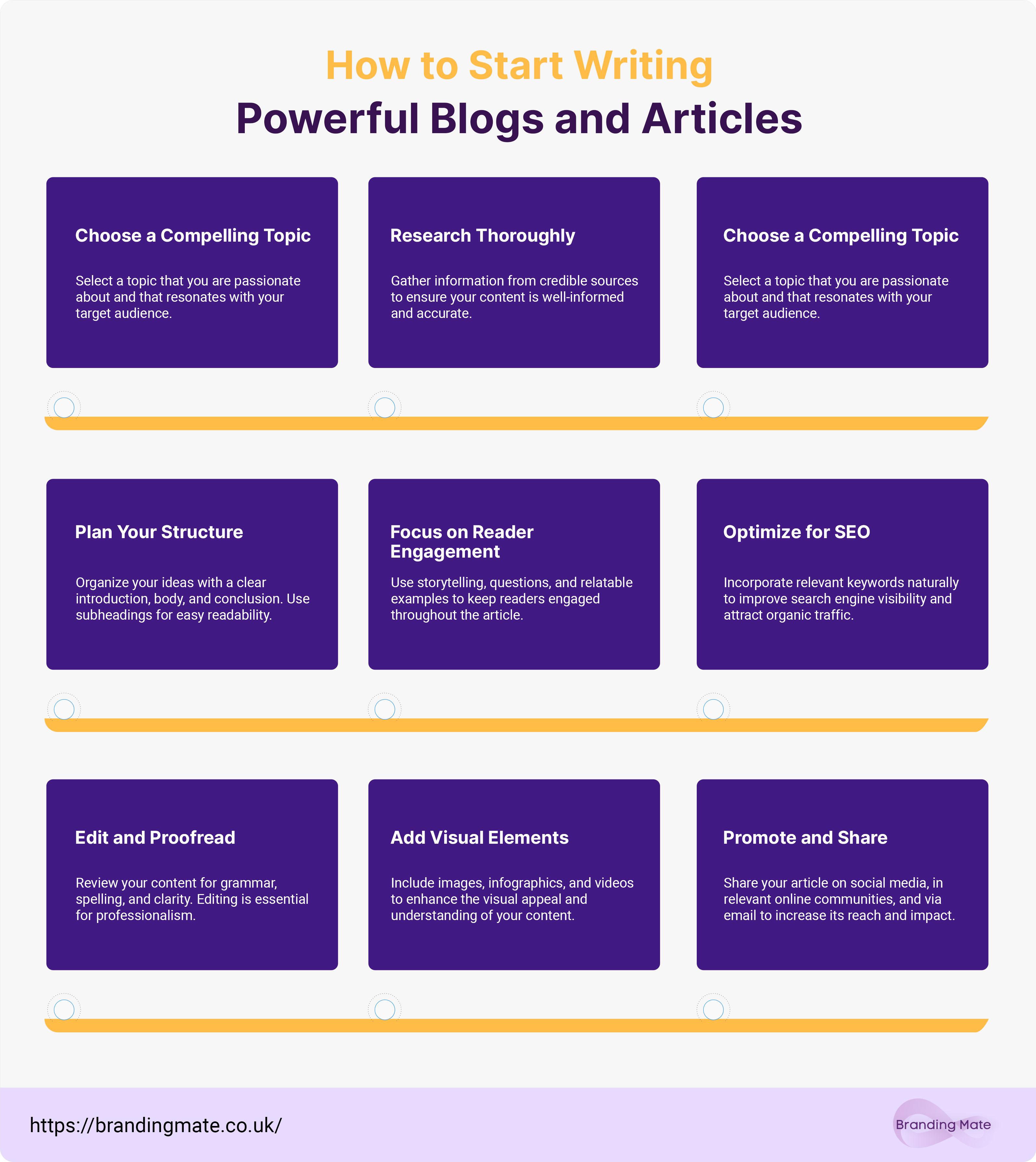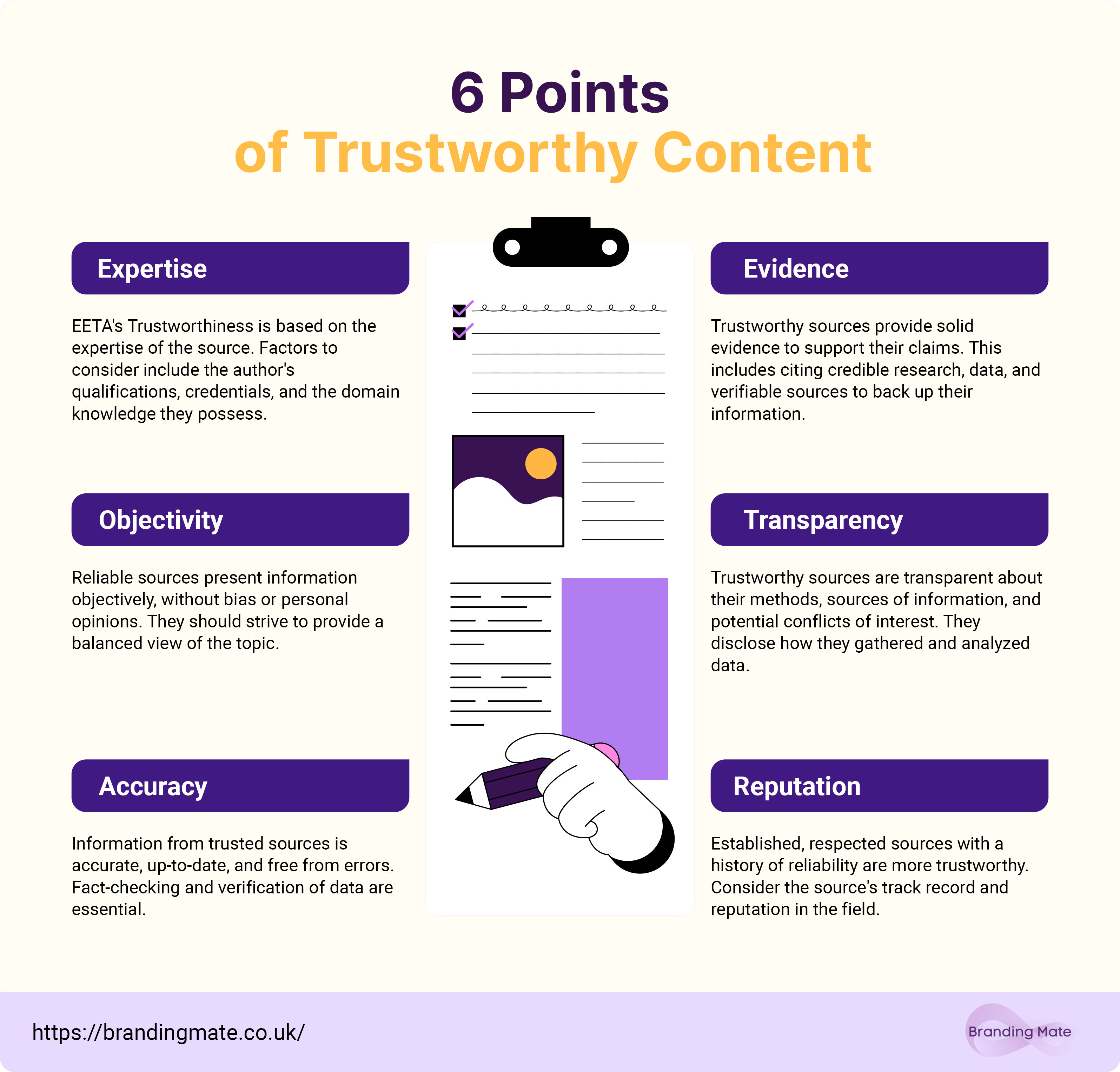
Hire Organic Marketing Experts
Looking to beat your competitors in SERPs? You need dedicated organic marketing experts! Connect with us now to launch your project!
Get Started Today Call NowContent is the King, but when an expert crafts it, it becomes more valuable. That’s what Google’s been trying to tell us, and in March 2013, Google came out and openly expressed that expert content is well-received and rewarded.
However, in December 2022, Google added one extra “E” in the content ranking equation, and SEOs have been scratching their heads ever since. So, what does EEAT mean? Here we go.
EEAT stands for Experience, Expertise, Authoritativeness, and Trust. This means that Google has certain metrics to measure your content based on EEAT.
While most blogs on Google EEAT will talk about adding an author page and byline, we have identified other means to improve your content’s Google EEAT score.
And to be fair, if adding authors' page and byline in content is the key to scoring EEAT, most websites wouldn’t stand a chance to rank on SERPs.
In addition, this seems like a weak determinant of EEAt, considering Google’s vast team of web engineers. So, we explored our theory of Google EEAT and got to work.
We launched a series of blog posts on our site and partnered with digital marketing experts. We included their links in our content and dedicated an author page.
In 4 months, we saw our blogs rank in the top 50 without any external backlinks. This was great until we dug deep and analyzed blog data.
We found that out of all the blogs, only 33% ranked on Google without backlinks. Ultimately, we tested our hypothesis and had our team of digital marketing experts write for us this time. In 7 months, 46% of our blogs ranked without external backlinks, which made us realize that it’s not about an author page or byline. The secret to Google EEAT success lies in the content itself.
Google EEAT is not a direct ranking factor. However, many SEOs and Branding Mate have reasons to believe that it affects your content’s ranking.
In addition, Google EEAT is an important SEO content factor because you don’t want to populate your site’s content with half-baked knowledge, do you?
In short, Google EEAT content guidelines are tailored to promote valuable content and to replace AI or half-baked knowledge on the internet.
Google has plenty of resources to hire the best minds in the industry. And these experts have developed means of collecting information from content and comparing it to their EEAT metrics.
Regarding that, the key to understanding Google EEAT is in the phrases and information you add in your blog post.
Here’s a detailed explanation of how to start writing powerful blogs and articles with Google EEAT.
 1. Experience
1. Experience
A person experienced in the field they are writing about would choose different vocabulary and have a unique style in their content.
For instance, a chef’s guide to cooking a risotto will be different from a home chef. They’d probably pay more attention to the structure of the rice, whereas a home chef might ignore that.
Similarly, if SEO experts write about keyword research, they would focus on keyword difficulty and volume.
However, content marketers focus on search intent and content that’s ranking against that term. And that’s the difference Google EEAT aims for.
To write content that’s EEAT standard, you need to talk in detail and take an experienced approach. For this, you need to incorporate your personal experience.
In short, adding experience improves your content’s Google EEAT score, allowing your blog post to rank higher.
2. ExpertiseExpertise relates to the extent of command you have on the subject. Google doesn’t check for your educational credentials for this. Instead, the search giant picks semantic keywords.
Semantic keywords are words or phrases that are conceptually related to one another—for example, leads and conversions.
So, if you are writing about how to get leads for your small business, you might want to include words like conversion and Marketing Qualified Leads.
However, semantic keywords come naturally. When you try to follow a guideline for such keywords, you stuff them where they don’t belong.
To boost expertise in your content, it’s best to study the subject you are writing on and absorb as much information as possible. Next, you need to start writing in your own words.
In addition, you need to study from multiple sources to avoid ethical plagiarism. Google EETA metrics account for rephrasing and AI generation.
So, keeping an eye on your AI content will keep your site safe from Google penalties.
3. AuthoritativenessAuthoritativeness in Google ETA estimates the extent to which the content creator is well-versed in the topic.
To score authoritativeness in your content, you must cover your topic from all aspects. Which means you can’t leave any stones unturned.
However, writing long-form content is unnecessary just to prove your command over the subject. Sometimes, if you successfully explain your content in short words, Google will reward that.
Building authoritativeness isn’t a one-blog game. You must post multiple blog posts on your website to prove your authority over the subject.
One way to do that is by writing linkable content long-form guides over a particular topic and continuing the momentum with short blogs interlinked.
4. TrustworthinessBeing trusted by the world’s largest search engine is an honor. But the path to becoming trustworthy is not easy.
For starters, your site needs to have a user-friendly navigation and quick load time. In addition, properly citing all the sources you’ve mentioned in your content is also a way to build trust.
Nevertheless, the trust factor of Google EEAT is the aggregate of all previous metrics we’ve discussed.
But for the sake of this blog post, here’s a visual depiction of what you can target to improve your sites.
6 Points of Trustworthy Content
Creating a rich EETA strategy is a site-wide practice that starts from the first blog and stays in forever practice. There are no shortcuts to it, and you have to work on Google EEAt from the get-go.
If you’ve already started your content plan without EEAT, it’s not too late. You can optimize your existing content and create more blog posts that build topical authority.
If you want to outsource content production and accelerate your Google EEAT content, browse our SEO services page and discuss your project with a content expert.

Looking to beat your competitors in SERPs? You need dedicated organic marketing experts! Connect with us now to launch your project!
Get Started Today Call Now